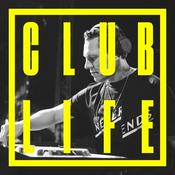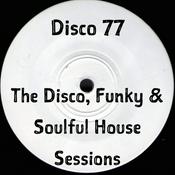528 episodes
- The Sonic Youth cofounder opens up about her solo output, the intersection of art and music, and her new album, PLAY ME.
For over four decades, Kim Gordon has navigated the edges where fine art meets noise. Her claim to fame was as a founding member of Sonic Youth, the band that took the nihilistic, abrasive energy of New York's no wave scene and forged it into a new language for rock.
After Sonic Youth's public breakup in 2011, Gordon returned to her original creative practice: visual art. But in recent years, she has undergone a staggering creative transformation that's led her back to music. At 72—an age when most legends are content with the heritage circuit—she has instead dived headlong into the sounds of the present: industrial electronics, Chicago footwork and the blown-out low-end of SoundCloud rap.
Aiming to break with her Sonic Youth legacy, Gordon released her first two solo albums, No Home Record and The Collective, in 2019 and 2024, respectively. And now, she's back with her third LP: PLAY ME. Working alongside producer Justin Raisen, she uses beat-oriented frameworks to interrogate what she calls the "tyranny of frictionless culture." From naming Spotify playlists in her lyrics to donating proceeds to reproductive rights, her work remains a vital, confrontational critique of late capitalism and technocratic fascism.
In this RA Exchange, Gordon discusses the process of moving closer to solo work, as well as the masculinity of rock; her evolving relationship with electronic music; the politics of the "body;" and why, after thinking she was done with music, she keeps getting pulled back in. Listen to the episode in full.
Hosted on Acast. See acast.com/privacy for more information. - For the Exchange's Season Two relaunch, the visionary duo discuss their first release in 13 years and the inspiration behind their trailblazing sound.
Neel and Donato Dozzy, who perform and make music together as Voices From The Lake, first joined forces in 2011, when what was supposed to be a one-off performance in the Japanese Alps changed the trajectory of ambient techno forever.
The music they made for the occasion was released as a self-titled album in 2012—a record that achieved mythical status in the underground and is still described as the Selected Ambient Works for the Berghain generation. Instead of following techno's standard linearity and instrumentation, the duo deployed a soft pulse, massive reverb trails and carefully placed silence to make their music feel like a living, breathing organism.
Dozzy and Neel then went silent for 13 years, each pursuing their individual careers while fans pined for more music. And in December 2025, they finally delivered. II, which is dedicated to their late friend Nuel, manages to be both a continuation and a reinvention of the sound they pioneered more than a decade ago.
In this RA Exchange, they uncover its guiding concepts, which draw deeply from the well of improvisational practices, concepts in Japanese design and aesthetics, and the minimalist visual art of contemporaries like Mike Parker. The duo also reveal their plans to veer away from the ambient blueprint altogether. Listen to the episode in full.
Hosted on Acast. See acast.com/privacy for more information. - The Leisure System co-founder talks psychology, behavioral science and his standout album of the year, Stochastic Drift.
Sam Barker's influence on contemporary electronic music culture spans many levels—not only as a producer and DJ pushing against traditional genre boundaries, but also as key figure behind the scenes as head of the label Leisure System. He came into RA HQ to talk about the central thesis in his current work: exploring organic, human timing in a genre that has become increasingly obsessed with mechanized grids.
The Berlin-based artist tells us about how he puts this theory into practice in his standout album of the year, Stochastic Drift, and his recent collaborative project with saxophonist Bendik Giske. Beyond the technical, he also reflects on the evolution of the Berlin scene, the surprising arguments for liberation in the streaming economy and the role of art in imagining a utopian future. Listen to the episode in full.
Hosted on Acast. See acast.com/privacy for more information. - The Honduran artist talks about the rise of reggaeton, the dark side of beauty standards and her new album, Vanity.
In the past decade, reggaeton has taken the world by storm, expanding from beyond its origins in Panama and Puerto Rico to become an undeniable global force. Yet, within this massive cultural explosion, few artists are navigating the sound with the distinct, subversive energy of Isabella Lovestory.
Originally from Honduras but shaped by a formative migration to the US and the liminal spaces of the internet, the Montreal-based artist has developed an aesthetic she calls a "plastic fantasy"—a hyper-stylised world of bootleg luxury and cinematic flair.
In this Exchange, she talks to Resident Advisor's Chloe Lula about her new album, Vanity, which she calls a response to her obsession with the "dark side of beauty standards." She also discusses her place within the wider reggaeton landscape; her efforts to reclaim and feminise a historically male-dominated genre; the financial erasure of women in the scene; and how her experimental approach challenges the self-seriousness of electronic music. Listen to the episode in full. -Chloe Lula
Hosted on Acast. See acast.com/privacy for more information. - The drum & bass veteran talks about bass music eras, dance culture in America and his new album, Contact.
British artist Nicolaas Douwma, AKA Sub Focus, has been steadily putting out big-room drum & bass since the early 2000s. In more recent years, he's become staggeringly popular, releasing a string of Top 40 UK pop hits that have made him synonymous with a more mainstream sound. His influence looms large across a whole generation of young producers, particularly in the US.
In this Exchange, Douwma sits down with Resident Advisor editor Gabe Szatan at the beautiful Red Rocks Amphitheater in Colorado. They speak about how he hit number one in the US dance music charts last year, as well as how drum & bass moved from being popular with a "secret clique of people" to becoming what, for lack of a better term, could be called "brostep."
There's a new Sub Focus album dropping on November 21st called Contact, which includes collaborations with Grimes and Katy B. Grab your copy when it comes out. Watch this interview in full on our YouTube channel, or listen to the audio via SoundCloud, Spotify or Apple Music. -Chloe Lula
Hosted on Acast. See acast.com/privacy for more information.
More Music podcasts
Trending Music podcasts
About RA Exchange
The weekly RA Exchange is a series of conversations with artists, labels and promoters shaping the electronic music landscape. Hosted on Acast. See acast.com/privacy for more information.
Podcast websiteListen to RA Exchange, Bandsplain and many other podcasts from around the world with the radio.net app

Get the free radio.net app
- Stations and podcasts to bookmark
- Stream via Wi-Fi or Bluetooth
- Supports Carplay & Android Auto
- Many other app features
Get the free radio.net app
- Stations and podcasts to bookmark
- Stream via Wi-Fi or Bluetooth
- Supports Carplay & Android Auto
- Many other app features


RA Exchange
Scan code,
download the app,
start listening.
download the app,
start listening.

































